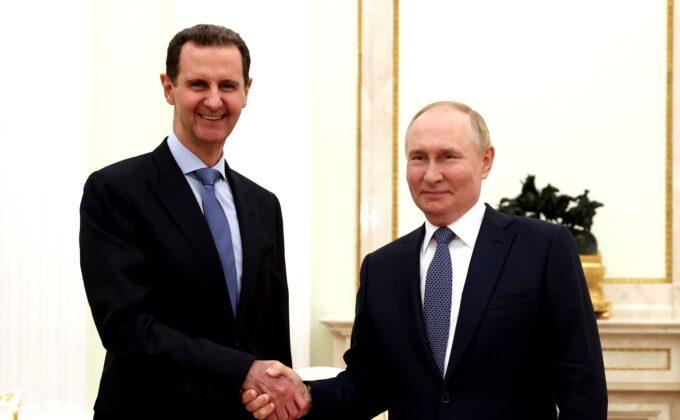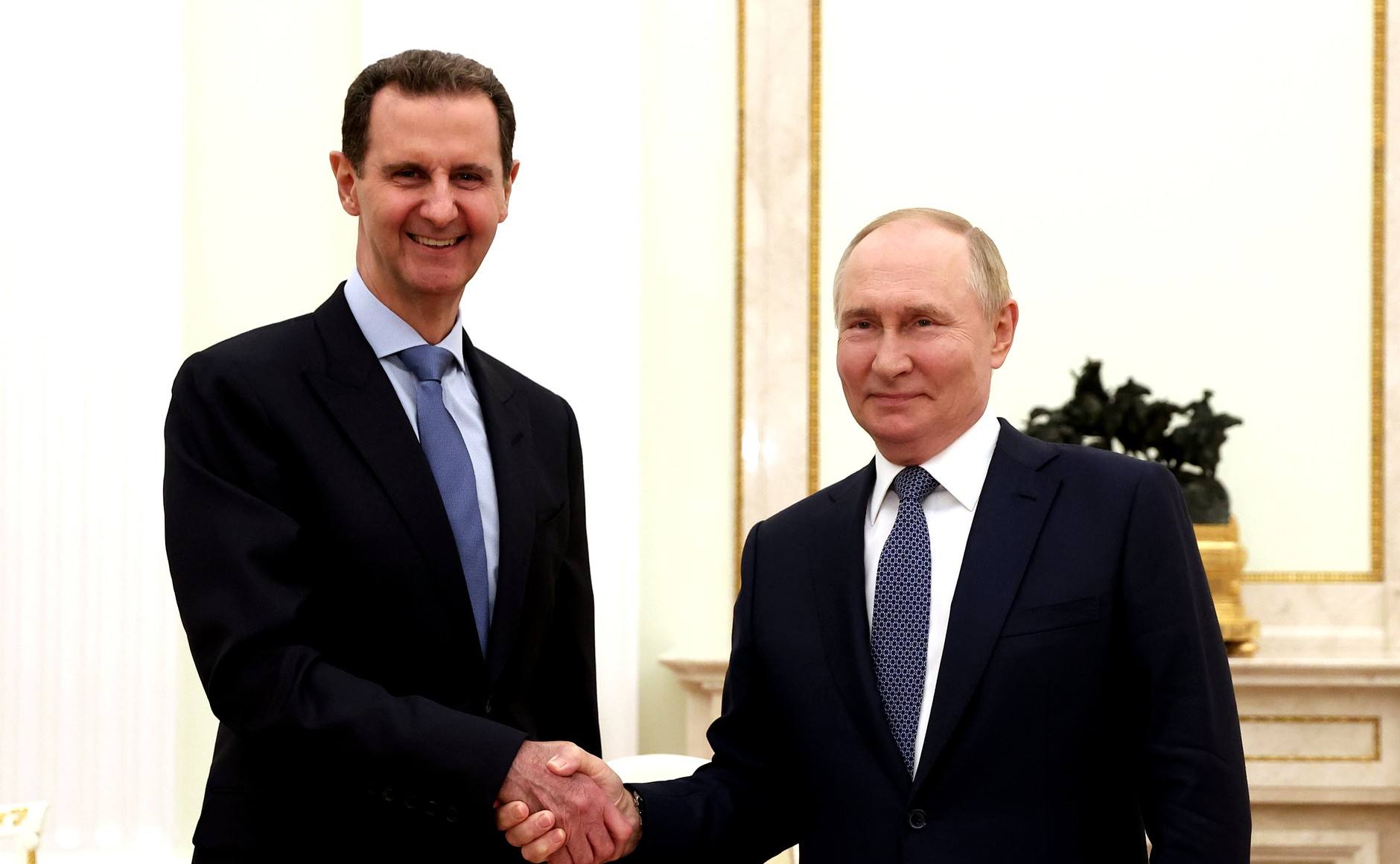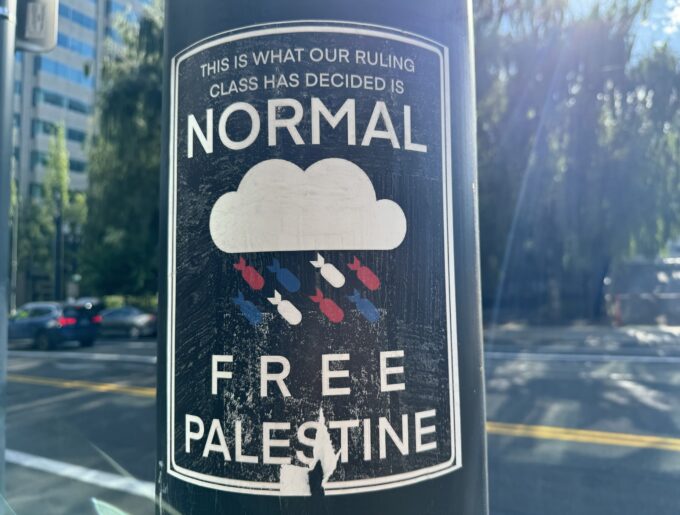





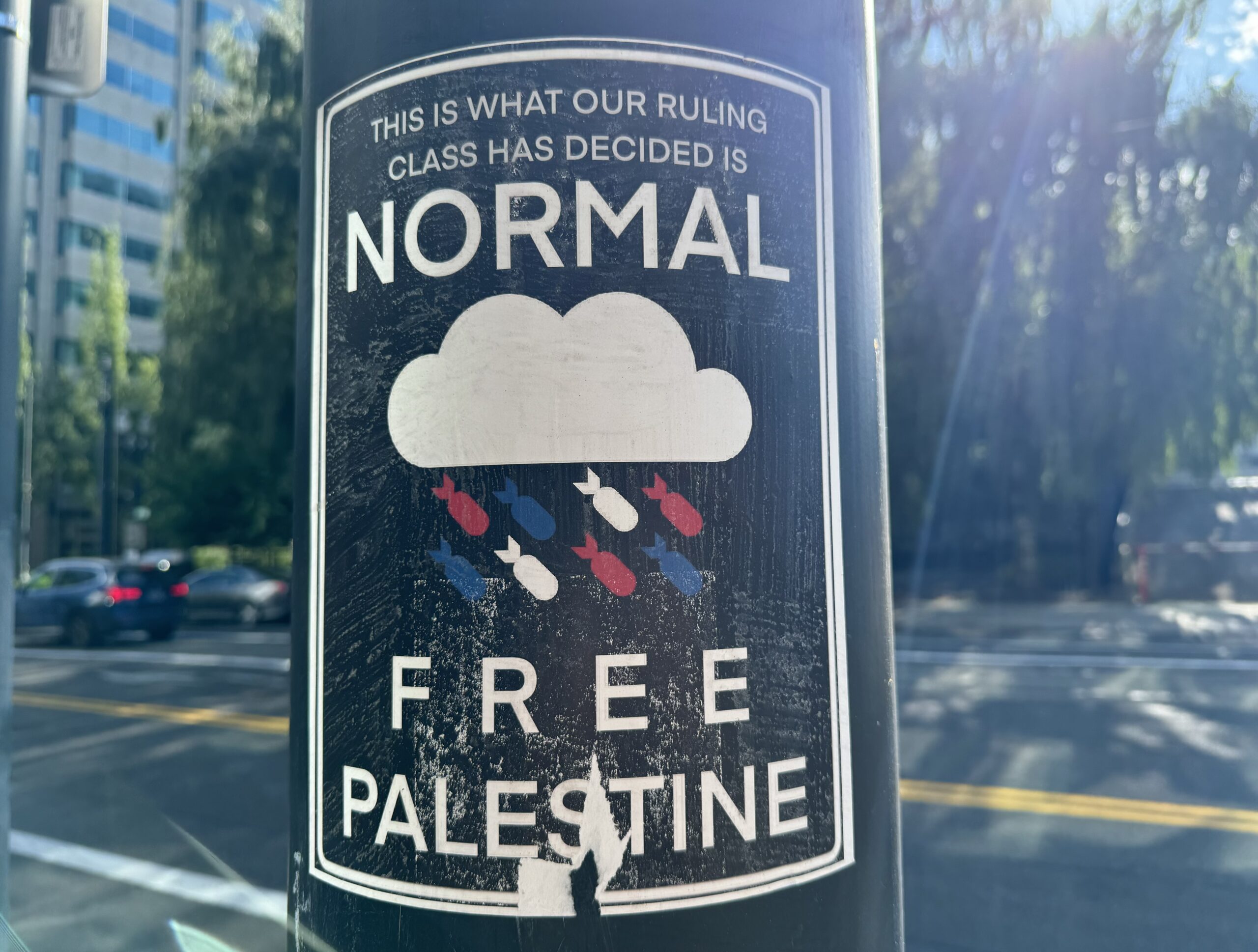


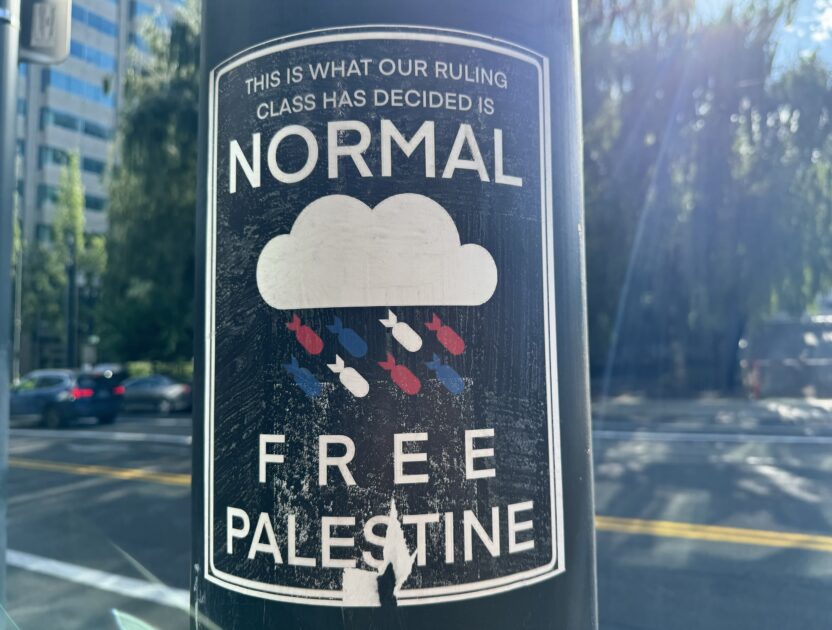

































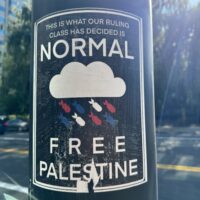



















Photograph by Nathaniel St. Clair
I haven’t written much about Gaza since the war started, for two main reasons. One, because everything is already so clear. Britain, America, Israel and their allies have decided to try to eliminate a resistant population in a strategically crucial region, and the rest of the world is either participating, acquiescing or wringing its hands. Everyone can see what is happening; what can I add of any value that is not already entirely obvious? And secondly, because attempts to impose sense on such a senseless situation feel crass. The situation is so intensely disturbing, even the simple act of putting it into words seems already to trivialise it. As the Chicago-based Palestinian journalist Ali Abinimah of Electronic Intifada put it early on in this latest phase of the war, “People come to us for analysis. I don’t know how to analyse this. I don’t know what to say to people.” Because the annihilation of Gaza is also a war against meaning.
Our ability to make and tell stories is what makes us human. That’s also how we deal with suffering and pain and loss. But stories have an arc; there is a return from the abyss. Terrible, tragic things happen, even things which we might never heal from, but people change and adapt and weave the terrible into the story of their life. People die, but their influence lives on, their memory is celebrated and valued by those who knew and loved them. People suffer but they learn something and grow from their experiences, somehow, however awful they are. ‘Your gift will come from your wound,’ as the storytellers say.
But the sheer relentless nature of the holocaust in Gaza means there is no story arc. There is no return from the abyss. The abyss just grows and keeps growing. People are killed but before they can be grieved or celebrated or woven into a story, everyone who knew them is slowly (or quickly) killed as well, whilst anyone left is focused on survival. There is no time to make sense of anything, and no sense to be had anyway. There is no ‘personal growth’ to be made from this horror.
Ahmed Alnaouq, founder of the Palestinian group, We Are Not Numbers, lost his father, five remaining siblings and all fourteen of their children to an Israeli airstrike on his father’s home two weeks into the war. A year later, he was commissioned by the New Arab to write an article about it. He later told the Electronic Intifada about the process of writing this article: “Ten years ago, Israel killed my brother, my older brother, and that was the first time I lost a family member. But writing a story about my brother back then, it was much easier than writing this story about my family. And I think it’s because when you lose only one brother, when you only lose one family member, you know that your sadness, your agony, your pain is focused, is concentrated, you know what you are lamenting for, you know what you are crying for. You know what is very deeply painful to you – it is a brother. Ten years ago, when Israel killed my brother, I couldn’t forget about my brother: I imagined, I remembered all the stories that we had together, all the memories, all the pictures: and for me that was a relief, because I knew who I was sad for. But when you lose twenty-one members of your family .. you could not know who you cry for. I didn’t know to think about my father or my brother or my other brother or my sisters or my nieces and nephews, the fourteen kids who I raised some of them. I was very distracted for the past year. And because I was very distracted I couldn’t think of one specific person, I couldn’t dare to think of one of them for the past year, I would always avoid talking about them, I would avoid going to whatsapp messages that I shared with one of them. It was very difficult and I purposely tried to avoid remembering them because if I remember them I will be one hundred times more depressed than I am.”
And this is part of the intention. Resistance movements are built on stories: of repression and suffering and heroism. Refaat Alareer understood this very well (see his beautiful Ted Talk, ‘Stories Make Us’, here). He was perhaps the single most important figure in terms of bringing Gazan voices to the English-speaking world, and had educated and inspired a whole generation of English-language journalists and authors in the strip. In one of several books of Gazan writing he edited, he wrote that “Sometimes a homeland becomes a tale. We love the story because it is about our homeland and we love our homeland even more because of the story.” Israel wants to eradicate not only the Palestinians’ resistance and nation but also their ability to make sense of their situation. Hence the relentless killing of Gaza’s storytellers. Over 200 journalists and media workers have been killed by Israel in the past fifteen months, many in openly targeted attacks. Just last week, a clearly marked press van was hit by an Israeli missile, burning alive all five of its occupants. Refaat Alareer himself was hunted down and killed along with several members of his family in a targeted strike on his sister’s apartment on December 6th 2023 (perhaps not coincidentally, just three days after the British RAF began flying surveillance flights over Gaza for the IDF). It was the third attempt on his life: his own apartment and University had both been hit earlier in the war.. Famously, his last poem, written to his daughter Shaima, began ‘If I must die, you must live, to tell my story.’ But she too was killed, along with her husband and their baby son, in an airstrike on their home a few months later.
Think about the alcoholism rife in aboriginal communities in Australia and North America. This reflects not simply degraded material conditions and opportunities, but the transformation of a worldview rich with deep meaning into one rendered senseless through colonial erasure.
And they want to do that to the rest of us as well; they don’t want anyone to be able to imbue the story and concept of ‘Palestine’ with any meaning. And it is not easy to see a way to resist this – attempts to render meaning to the struggle, in the midst of a senseless holocaust, come across too often as crass denials of reality, using Palestinian suffering as a raw material to fuel our own pontifications. Even as I write this now, it feels like that.
The tragedy is, Israelis are committed to this path because of their own need for a sense of meaning. The Nazi Holocaust had this same effect on many Jews, destroying their ability to make meaning of their individual and collective lives. But Israel was presented as their happy ending, one that made sense of the Holocaust and finally gave it meaning. It provided a final act that transformed that senseless event into a story. It was always a fiction of course; Amos Oz talks in his memoir about his mother’s suicide as a result of her inability to find meaning in her life after the horror of the Holocaust; for her, the mere concept of the state of Israel could not – despite (or perhaps because of) actually living there – help her overcome this.
To admit the failure of the project now would put Israelis right back face-to-face with the senselessness of the Holocaust. The final act was a myth. There never was any happy ending.
There is a way out of course, and it’s one Jews are increasingly taking – to embrace the fact that the struggle for justice is universal, and meaning comes from committing to that struggle, whatever the costs, with no exceptions. This means a decisive rejection of Zionism. But that is where meaning is to be found, even in the Holocausts and the Nakbas – for Palestinians, for Jews and for all of us.
The post A War Against Meaning appeared first on CounterPunch.org.
This post was originally published on CounterPunch.org.
